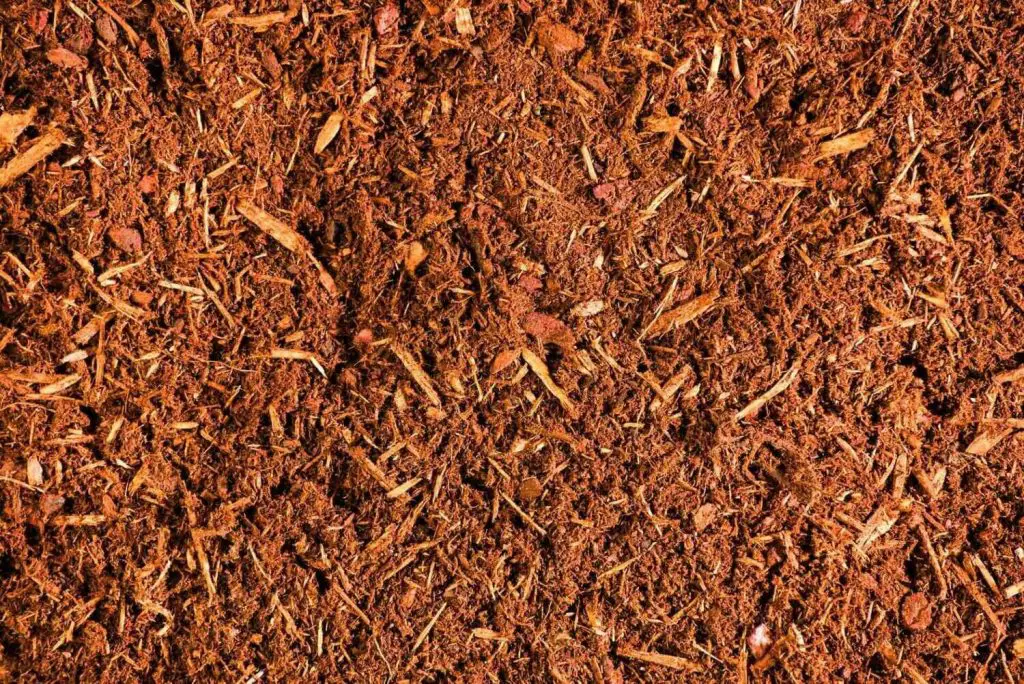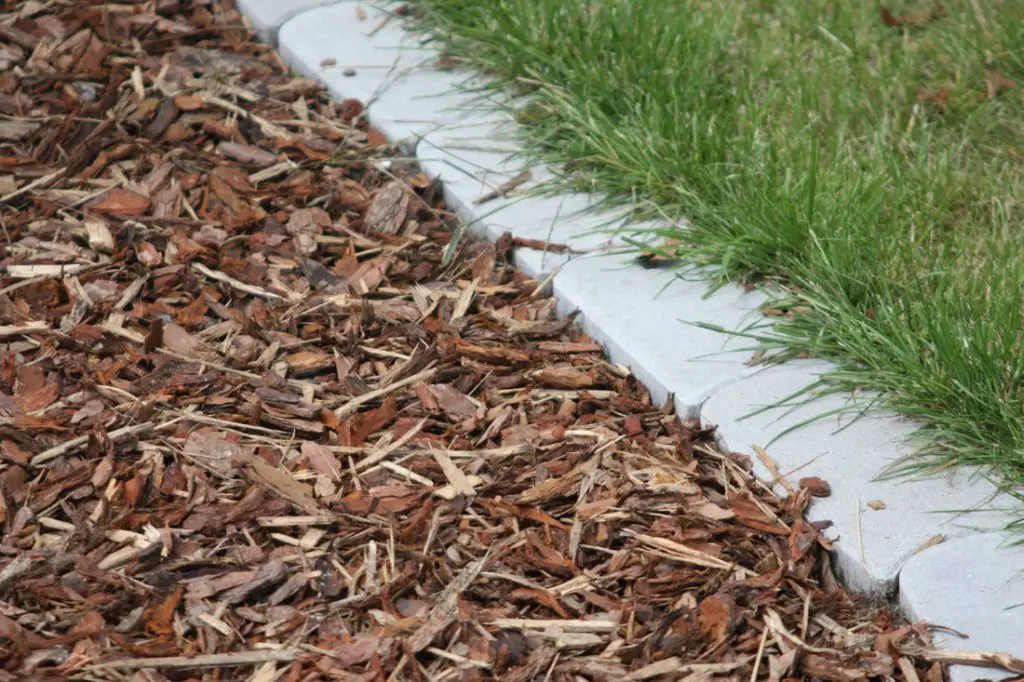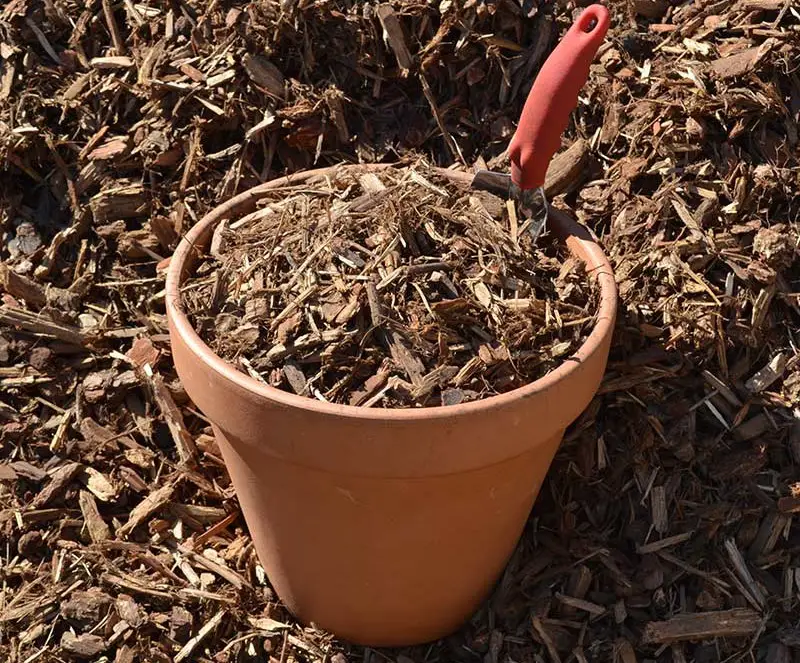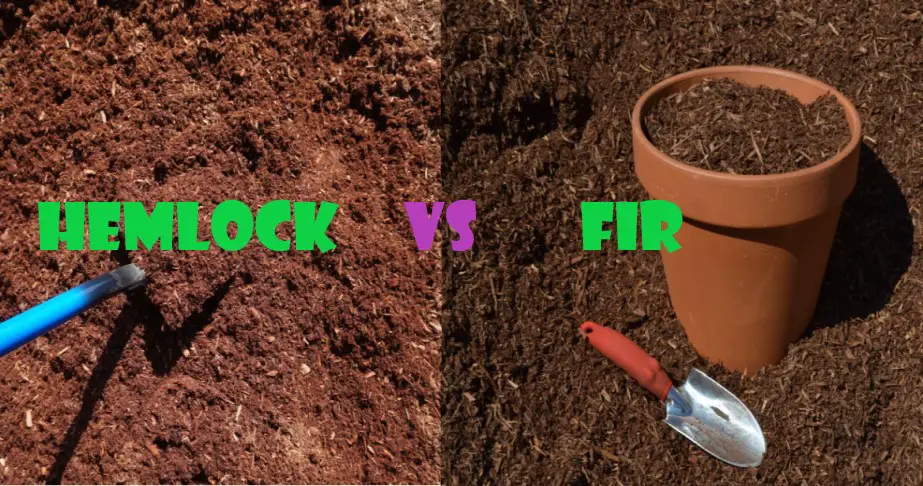Choosing the right mulch for your garden or landscape can significantly impact the health and aesthetics of your plants.
Mulch not only adds visual appeal to your outdoor spaces but also plays a vital role in conserving moisture, suppressing weeds, and improving soil quality.
With so many options available, it can be overwhelming to determine which mulch is best suited for your specific needs.
That’s why I’ve prepared this comprehensive comparison guide focusing on two contenders: hemlock and fir mulch.
Understanding Hemlock Mulch

Hemlock mulch, derived from the hemlock tree (Tsuga species), offers a unique set of characteristics and benefits.
This mulch has a reddish-brown color and a coarse texture, adding an attractive aesthetic to your garden.
Hemlock Mulch Pros
- Moisture Retention and Weed Suppression
Hemlock mulch forms a protective barrier that helps retain moisture in the soil, reducing the frequency of watering.
It also acts as a natural weed suppressant, minimizing weed growth and competition with your plants.
- Soil Protection and Nutrient Enhancement
The mulch decomposes slowly, enriching the soil with organic matter and releasing essential nutrients over time.
It also shields the soil from extreme temperature fluctuations, preventing erosion and promoting soil structure improvement.
- Aesthetic Appeal and Natural Fragrance
Hemlock mulch adds a pleasing visual appeal to your landscape, giving it a natural, rustic touch. You get to enjoy a pleasant fragrance that enhances the overall sensory experience.

Hemlock Mulch Cons
- Acidic pH Levels and Plant Suitability
Hemlock mulch tends to have a slightly acidic pH, which may not be suitable for plants that prefer neutral or alkaline soil conditions. Careful plant selection and periodic soil testing are necessary to maintain optimal pH levels.
- Allergenic Properties and Precautions
Some individuals may have allergic reactions to hemlock mulch, particularly if they’re sensitive to tree pollens or have respiratory conditions.
Taking precautions such as wearing gloves and a mask while handling the mulch can minimize potential risks.
Related: 10 Best Mulch for Wet Areas
Exploring Fir Mulch
Fir mulch, derived from various fir tree species (Abies genus), presents its unique set of characteristics and advantages.
This mulch usually has a lighter color, ranging from golden to reddish-brown, and has a finer texture compared to hemlock mulch.

Fir Mulch Pros
- Organic Matter Decomposition and Nutrient Release
Fir mulch breaks down relatively quickly, contributing to the decomposition of organic matter in the soil. This process enhances nutrient availability and promotes healthy plant growth.
- Insulation and Temperature Regulation
The fine texture of fir mulch allows for excellent insulation, protecting the soil and plant roots from temperature extremes.
It keeps the soil cool in hot weather and provides insulation against frost in colder seasons.
- Erosion Control and Soil Structure Improvement
Fir mulch forms a dense layer that prevents soil erosion caused by heavy rain or wind. As it decomposes, it improves soil structure by increasing its water-holding capacity and enhancing drainage.

Fir Mulch Cons
- Compaction and Water Drainage Issues
The mulch can compact over time, reducing water penetration into the soil. Regular cultivation or aerating of the mulch can help maintain adequate drainage and prevent compaction.
- Potential for Pest Infestation and Disease Development
The organic nature of fir mulch may attract certain pests, such as termites or slugs, and provide a favorable environment for fungal diseases.
Regular monitoring and proper garden maintenance can help mitigate these risks.
Related: 8 Best Mulches for Citrus Trees in Pots
Key Differences between Hemlock and Fir Mulch
Understanding the main differences between both mulches will help you to make an informed decision.
Composition and Chemical Properties
- Hemlock mulch is typically made from the bark of the hemlock tree, while fir mulch comes from various fir tree species
- Hemlock mulch has a coarser texture and tends to decompose more slowly than fir mulch
- Fir mulch has a finer texture and decomposes relatively faster, releasing nutrients into the soil more quickly
Price Range and Availability
- The price of both hemlock and fir mulch may vary depending on factors such as location, supplier, and quantity
- Hemlock mulch is generally considered a premium product and may be slightly more expensive than fir mulch
- Availability can also vary regionally, with hemlock mulch being more common in areas where hemlock trees are abundant
Suitability for Different Plants and Landscapes
- The acidic nature of hemlock mulch makes it well-suited for acid-loving plants such as azaleas, rhododendrons, and blueberries
- Fir mulch, with its balanced pH, is suitable for a wide range of plants and is particularly beneficial for vegetable gardens and ornamental plants
Hemlock and Fir Mulch Similarities
- Both hemlock and fir mulch are considered environmentally friendly options as they’re derived from renewable resources
- When sourced from sustainably managed forests and produced using responsible practices, these mulches can contribute to forest health and conservation efforts
Factors to Consider when Choosing Mulch
Consider the following factors when deciding between hemlock and fir mulch.
Garden or Landscape Requirements
- Assess the specific needs of your garden or landscape, including the type of plants, soil conditions, and aesthetic preferences
- Consider factors such as moisture retention, weed suppression, and temperature regulation
Plant Species and Soil pH Preferences
- Understand the pH requirements of your plants to ensure compatibility with the mulch you choose
- Conduct a soil test to determine the current pH levels and make necessary adjustments if needed
Climate and Weather Conditions
- Consider the climate of your region, including temperature ranges, rainfall patterns, and exposure to wind or sunlight
- Choose a mulch that can help insulate the soil, retain moisture, and protect against extreme weather conditions
Local Availability and Cost Considerations
- Explore the availability and cost of both hemlock and fir mulch in your local area
- Consider factors such as transportation costs, supplier reliability, and the overall budget for your project
Related: Top 10 Wholesale Mulch Suppliers
Hemlock vs. Fir Mulch: Verdict
Ultimately, the choice between both mulches depends on your specific gardening needs, plant preferences, and local availability.
If you have a preference for acid-loving plants or want mulch with a pleasant fragrance, hemlock mulch may be the better option.
However, if you seek versatility, quick decomposition, and overall soil improvement, fir mulch can be an excellent choice.
Remember, mulch serves multiple purposes beyond aesthetics, so choose the mulch that aligns with your specific gardening goals.
Don’t hesitate to experiment and observe the results to determine the most suitable mulch for your garden or landscape.
In the end, the key is to prioritize the health and vitality of your plants while considering factors such as availability, cost, and sustainability.
By making an informed decision, you can enhance the beauty and productivity of your outdoor spaces while nurturing a thriving garden ecosystem.
Related
- Best Gravels to Walk on Bare Feet
- 10 Best Mulch for Wet Areas
- Top 10 Wholesale Mulch Suppliers
- Top 7 Disadvantages of Decomposed Granite
- Gorilla Hair Mulch Pros and Cons
- Best Mulch for Perennials
- Grass Mulching Pros and Cons
- Hemlock vs. Pine Mulch: Side-by-Side Comparison


